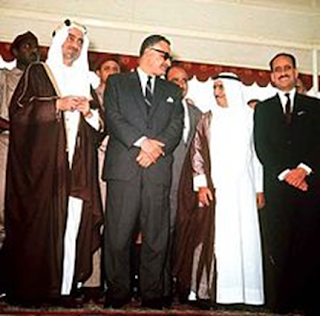The Barbary Pirates: America’s First War on Terrorism
The threat of the Barbary Pirates was
not new to the world at this time. From the 16th-18th centuries,
the Barbary forces raided ships and the coastlines of Europe for war booty and
slaves. In fact, it is estimated that over the course of 200 years,
over 1.25 million Europeans (along with several thousand Americans) had been
taken as slaves by the Barbary Forces. In March of 1785, Thomas
Jefferson and John Adams went to London to negotiate with Tripoli's envoy,
Ambassador Sidi Haji Abdrahaman about ceasing hostilities. Our Founding Fathers
had no desire to get involved in international conflicts and wanted this matter
resolved peacefully. When Adams and Jefferson inquired into the
Mujadhins' propensity "to make war upon nations who had done them no injury,"
the ambassador replied: “It was written in their Koran, that all nations which
had not acknowledged the Prophet were sinners, whom it was the right and duty
of the faithful to plunder and enslave; and that every Mussulman who was slain
in this warfare was sure to go to paradise.”
The only way that the Barbary pirates
would grant the U.S. merchant ships safe passage was by paying them an annual
tribute. Initially, the U.S. agreed to pay tribute, but overtime,
this proved to be in vain. The Barbary Pirates continued to attack
U.S. merchant ships and when the U.S. pleaded for the Barbary states to stop,
they simply responded by demanding more tribute. By the time Thomas
Jefferson was elected as President, nearly 20% of the U.S. National Budget was
going to bribe the Barbary Pirates. Yet, the raids continued, and
Jefferson had enough. He knew that no amount of money would satisfy
these Pirates. Jefferson thus expanded the U.S. Navy and Marines,
and after two wars in 1801-1805 & 1815, the U.S. triumphed. Not
only did the U.S. secure safe passage, but their efforts ultimately crippled,
and eventually destroyed, a 200-year slave trade. Though this
conflict is largely forgotten today, it served to inspire the Marines Hymn “To
the Shores of Tripoli” and served to teach a valuable lesson: Tyrants will
never be bought off.
It is time for our leaders to learn from our Founding
Fathers and to heed the words of former President Madison: “The United States while they wish for war with no
nation, will buy peace with none.”
Sources:
Kilmeade, Brian & Don Yaeger. Thomas
Jefferson and the Tripoli Pirates. New
York: Sentinel, 2015.
Hunter, David L. “Thomas
Jefferson and Radical Islam’s War on the West.”
Frontpage Magazine. March 19, 2015. Accessed from https://www.frontpagemag.com/fpm/257151/thomas-jefferson-radical-islams-war-west-david-l-hunter.
“Jefferson and the Barbary Pirates.” Jeff Hix. Filmed [2009]. YouTube Video: 9:52. Posted [Sept. 2011]. Accessed from https://www.youtube.com/watch?v=Ui8OCiZsWGw





Comments
Post a Comment